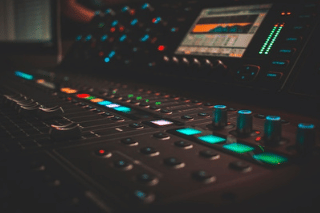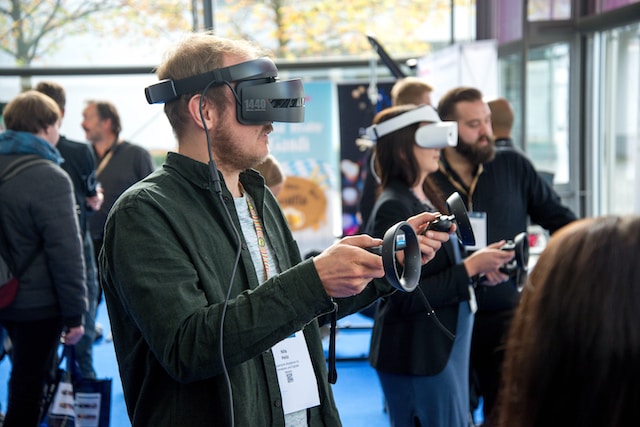The Prominence of Electronic Music
Electronic music has become a dominant force in the music industry, captivating audiences around the world with its unique sound and innovative production techniques. But where did it all begin? Who are the pioneers that paved the way for this genre? In this article, we will explore the journey of electronic music pioneers and their significant contributions to the development of this revolutionary genre.
The First Steps in Electronic Music: Robert Moog
One of the earliest pioneers of electronic music is Robert Moog. Moog was an American engineer who invented the Moog synthesizer, a groundbreaking instrument that revolutionized the way music was created. The Moog synthesizer allowed musicians to manipulate sound through voltage control, opening up a whole new world of possibilities for electronic music production. Artists like Wendy Carlos and Kraftwerk were among the first to embrace this new technology and incorporate it into their music, creating a sound that was unlike anything that had been heard before.
Exploring New Sonic Realms: Brian Eno
Another influential figure in the world of electronic music is Brian Eno. Eno is known for his ambient compositions and experimental approach to music production. He is credited with popularizing the term “ambient music” and has been a major influence on artists in various genres, including rock, pop, and electronic. Eno’s use of synthesizers and tape loops in his music challenged traditional notions of song structure and showcased the limitless possibilities of electronic soundscapes.
Reinventing the Rhythm: Detroit Techno
In the 1980s, electronic music took a new direction with the emergence of Detroit techno. Artists like Juan Atkins, Derrick May, and Kevin Saunderson pioneered this genre, blending elements of funk, soul, and synth-pop with electronic beats. Their music was characterized by its futuristic sound and the use of drum machines and synthesizers. Detroit techno laid the foundation for the development of other electronic music genres, such as house and trance, and continues to be a significant influence on contemporary electronic music.
A New Chapter: EDM Emergence
The 1990s marked a turning point for electronic music with the rise of rave culture and the advent of electronic dance music (EDM). Artists like The Prodigy, Daft Punk, and The Chemical Brothers brought electronic music to the mainstream, fusing elements of techno, house, and breakbeat with high-energy beats and catchy melodies. Their music became synonymous with the rave scene and ignited a global phenomenon that continues to thrive today.
Pushing Boundaries: New Technologies
In recent years, electronic music has continued to evolve and diversify, with artists pushing the boundaries of sound and experimenting with new technologies. The rise of software-based production tools and digital audio workstations (DAWs) has made it more accessible for aspiring musicians to create their own electronic music. Online platforms like SoundCloud and Bandcamp have also played a crucial role in democratizing the distribution of electronic music, allowing artists to reach a global audience without the need for traditional record labels.
A Constant Journey: Innovation and Experimentation
As we can see, the journey of electronic music pioneers has been one of constant innovation and experimentation. From the early days of synthesizers and tape loops to the modern era of digital production tools, these pioneers have shaped the landscape of electronic music and inspired countless artists to explore the possibilities of this genre. Their contributions continue to resonate in the music we hear today, making electronic music an integral part of contemporary culture.
Final Notes: The Role of Pioneers
Electronic music pioneers have played a vital role in the development and evolution of this genre. Their groundbreaking innovations and fearless experimentation have paved the way for the diverse and vibrant electronic music scene we know today. Aspiring musicians and fans of electronic music can draw inspiration from these pioneers and continue to push the boundaries of what is possible in the world of sound.
Key Takeaways:
- Electronic music pioneers like Robert Moog and Brian Eno revolutionized the way music was created, introducing new technologies and pushing the boundaries of sound.
- The emergence of Detroit techno in the 1980s laid the foundation for the development of other electronic music genres.
- The rise of rave culture and the advent of EDM in the 1990s brought electronic music to the mainstream, creating a global phenomenon.
- In recent years, electronic music has continued to evolve, with artists experimenting with new technologies and digital production tools.
- The contributions of electronic music pioneers continue to shape the landscape of contemporary music.
If you’re passionate about electronic music and want to learn more about the music industry, consider taking the “NYU x Billboard | Music Industry Essentials” online course and certificate program offered by Yellowbrick. This comprehensive program provides valuable insights into the music industry, including topics like artist management, marketing, and digital strategy. By gaining a deeper understanding of the industry, you can navigate your own path and make a meaningful impact in the world of electronic music.






